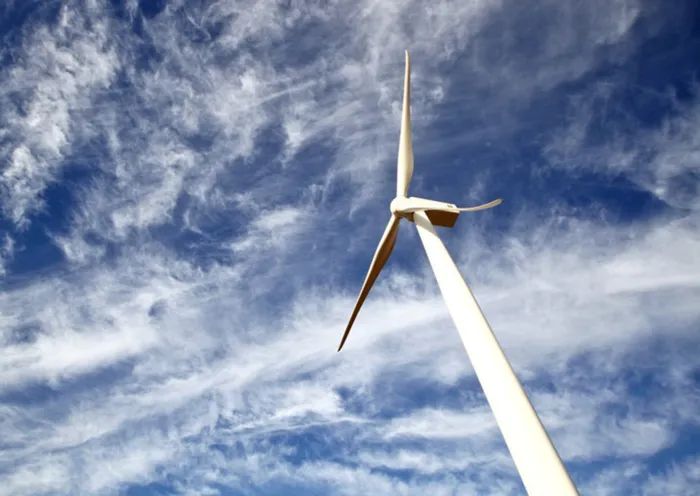
Countries like Kenya, Ethiopia, and South Africa have successfully harnessed wind power, with Kenya's Lake Turkana Wind Power project standing as Africa's largest wind farm, generating 310MW of clean electricity.
Image: File
Africa stands on the precipice of a renewable energy revolution that could fundamentally transform its economic trajectory and energy landscape. With abundant solar, wind, hydro, and geothermal resources, the continent possesses the natural endowment to become a global renewable energy powerhouse while simultaneously addressing its pressing energy access challenges.
The Renewable Resource Advantage
Africa's renewable energy potential is staggering. The continent receives some of the world's highest solar irradiation levels, with countries like Morocco, Egypt, and South Africa already demonstrating the commercial viability of large-scale solar installations. The Sahara Desert alone could theoretically generate enough solar power to meet global electricity demand multiple times over.
Wind resources are equally impressive, particularly along Africa's extensive coastlines and in elevated regions. Countries like Kenya, Ethiopia, and South Africa have successfully harnessed wind power, with Kenya's Lake Turkana Wind Power project standing as Africa's largest wind farm, generating 310MW of clean electricity.
Hydroelectric power has long been a cornerstone of renewable energy generation across the continent, with the Democratic Republic of Congo's Inga Dam project potentially capable of generating 40,000MW – enough to power half of Africa. Meanwhile, the East African Rift Valley presents exceptional geothermal opportunities, with Kenya already deriving over 40% of its electricity from geothermal sources.
Economic Drivers of the Green Transition
The business case for renewable energy in Africa has never been stronger. Solar and wind power costs have plummeted by over 80% in the past decade, making them increasingly competitive with fossil fuel alternatives. This cost reduction, combined with improving technology and decreasing battery storage costs, positions renewables as economically attractive options for both grid-connected and off-grid applications.
For African businesses, renewable energy offers price stability and reduced exposure to volatile fossil fuel markets. Industrial operations, particularly in energy-intensive sectors like mining and manufacturing, are increasingly turning to renewable power purchase agreements to secure long-term, predictable energy costs while meeting sustainability commitments.
The job creation potential is equally compelling. The International Renewable Energy Agency estimates that the renewable energy sector could support 2 million jobs across Africa by 2030. These opportunities span the entire value chain, from manufacturing and installation to maintenance and project development, offering pathways for skills development and economic diversification.
Innovative Financing and Market Solutions
African renewable energy markets are witnessing unprecedented innovation in financing structures. Green bonds have emerged as a critical tool, with South Africa leading the way through its sovereign green bond programme. Blended finance mechanisms are attracting private sector investment by combining concessional public funding with commercial capital, reducing investment risks and improving project returns.
Pay-as-you-go solar systems have revolutionized energy access in rural areas, with companies like M-Kopa and d.light providing affordable solar solutions to millions of households across East and West Africa. These models leverage mobile payment platforms to make renewable energy accessible to previously underserved populations.
Development finance institutions are increasingly prioritizing renewable energy investments. The African Development Bank has committed to achieving 100% renewable energy financing by 2030, while institutions like the Green Climate Fund are channelling billions into African clean energy projects.
Regulatory and Policy Momentum
Governments across Africa are implementing supportive policy frameworks to accelerate renewable energy deployment. Renewable Energy Independent Power Producer Procurement Programmes (REIPPPPs) have proven successful in countries like South Africa and Zambia, creating competitive bidding processes that drive down costs while ensuring bankable project structures.
Feed-in tariffs, net metering policies, and renewable energy certificates are creating market incentives for distributed generation. Countries like Ghana, Kenya, and Rwanda have implemented comprehensive renewable energy laws that provide investor certainty and streamline project development processes.
Regional integration initiatives, such as the West African Power Pool and the Eastern Africa Power Pool, are facilitating cross-border renewable energy trade, enabling countries to optimize their resource utilization and improve energy security through diversification.
Overcoming Implementation Challenges
Despite tremendous potential, several challenges must be addressed to fully unlock Africa's renewable energy capacity. Grid integration remains a significant hurdle, requiring substantial investments in transmission infrastructure and smart grid technologies to accommodate variable renewable energy sources.
Capacity building is essential, with African institutions increasingly partnering with international organizations to develop local expertise in renewable energy project development, financing, and operations. Universities and technical institutions are expanding their renewable energy curricula to meet growing industry demand for skilled professionals.
Access to long-term, affordable financing continues to constrain project development. International climate finance mechanisms, including the newly established Loss and Damage Fund, present opportunities to mobilize additional resources for African renewable energy projects.
The Path Forward
Africa's renewable energy future requires coordinated action across multiple stakeholders. Governments must maintain policy consistency and continue regulatory reforms. Private sector engagement must be deepened through risk mitigation instruments and innovative financing structures. International partners should provide technology transfer and capacity building support.
The convergence of abundant resources, improving economics, and supportive policies positions Africa to leapfrog traditional energy development pathways. By embracing its renewable energy potential, the continent can achieve energy security, economic growth, and climate objectives simultaneously, creating a sustainable foundation for long-term prosperity.
The transformation of Africa's energy landscape through renewable sources represents not just an environmental imperative, but a profound economic opportunity that could reshape the continent's development trajectory for generations to come.

Ibra Ndieme Ndiaye, Partner, Forvis Mazars West and Central Africa.
Image: Supplied
Ibra Ndieme Ndiaye, Partner, Forvis Mazars West and Central Africa
BUSINESS REPORT